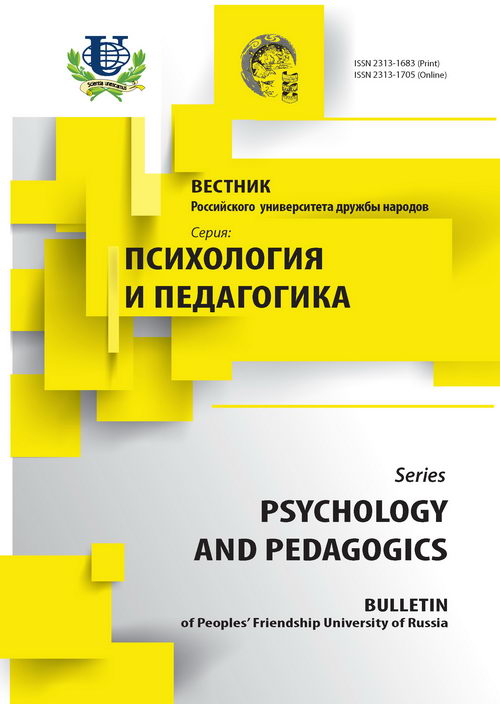СВОБОДНОЕ ВОСПРОИЗВЕДЕНИЕ СЛОВ ИЗ КРАТКОВРЕМЕННОЙ ПАМЯТИ:ЛИНЕЙНЫЙ ИЛИ КРИВОЛИНЕЙНЫЙ АЛГОРИТМ?
- Авторы: Тарноу Ю.1
-
Учреждения:
- Авалон Бизнес Систем
- Выпуск: № 3 (2015)
- Страницы: 16-20
- Раздел: Статьи
- URL: https://journals.rudn.ru/psychology-pedagogics/article/view/13461
Цитировать
Полный текст
Аннотация
Статья посвящена проблеме нахождения алгоритма воспроизведения слов из кратковременной памяти. Автор считает, что общее время воспроизведения слов увеличивается линейно в зависимости от количества воспроизведенных слов. Он считает, что алгоритм поиска слов аналогичен алгоритму поиска цифр, который был открыт в экспериментах Стернберга [13]. Линейный характер алгоритма поиска слов, о котором идет речь в статье, отличается от принятого алгоритма поиска по случайной выборке. Приведенные в статье данные свидетельствуют о том, что на поиск каждого пункта из списка слов затрачивается 2-4 секунды (в сотни раз больше, чем при поиске цифр) и эта константа относительно не зависима от возраста испытуемых, темпа предъявления списка, наличия или отсутствия дополнительной задачи перед воспроизведением слов. По мнению автора, описанный линейный характер воспроизведения слов из кратковременной памяти противоречит распространенной теории оперативной памяти, которая предполагает наличие «доступного хранилища» для 3-5 единиц воспроизводимого материала
Ключевые слова
Список литературы
- Barrouillet P., Camos V. As Time Goes By: Temporal Constraints in Working Memory. Current Directions in Psychological Science. 2012, no 21, pp. 413-419.
- Cowan N., Rouder J.N., Blume C.L., Saults J.S. Models of verbal working memory capacity: What does it take to make them work? Psychological Review. 2012, vol. 119 (3), pp. 480-499.
- Duncan M., Murdock B. Recognition and Recall with Precuing and Postcuing. Journal of Memory and Language. 2000, vol. 42, issue 3, pp. 301-313.
- Hintzman D. Research Strategy in the Study of Memory: Fads, Fallacies, and the Search for the “Coordinates of Truth”. Perspectives on Psychological Science. 2011, no 6 (3), pp. 253-271.
- Johnson D.M., Johnson R.C., Mark A.L. A mathematical analysis of verbal fluency. J General Psychology. 1951, no 44, pp. 121-128.
- Kahana J.M., Zaromb F., Wingfield A. Age dissociates recency and lag-recency effects in free recall. Journal of Experimental Psychology: Learning, Memory, and Cognition. 2001, no 28 (3), pp. 530-540.
- Kahana M. Associative retrieval processes in free recall. Memory & Cognition. 1996, no 24 (1), pp. 103-109.
- Laming D. Testing the Idea of Distinct Storage Mechanisms in Memory. International Journal of Psychology. 1999, vol. 34, no 5-6, pp. 419-426.
- Murdock Jr., Bennet B. The immediate retention of unrelated words. Journal of Experimental Psychology. 1960, vol. 60 (4), pp. 222-234.
- Murdock B. The serial position effect of free recall. Journal of Experimental Psychology. 1962, no 64 (5), pp. 482-488.
- Murdock B.B., Okada R. Interresponse times in single-trial free recall. Journal of Experimental Psychology. 1970, no 86 (2), pp. 263.
- Rohrer D., Wixted J. An analysis of latency and interresponse time in free recall. Memory & Cognition. 1994, no 22 (5), pp. 511-524.
- Sternberg S. High speed scanning in human memory. Science. 1966, no 153, pp. 652-654.
- Tarnow E. Response probability and response time: a straight line, the Tagging/Retagging interpretation of short term memory, an operational definition of meaningfulness and short term memory time decay and search time. Cognitive neurodynamics. 2008, no 2 (4), pp. 347-353.
- Tarnow E. There is no capacity limited buffer in the Murdock (1962) free recall data. Cognitive Neurodynamics. 2010, vol. 4, issue 4, pp. 395-397.
- Tarnow E. The free recall search process introduces errors in short term memory but apparently not in long term memory. 2011. Available at: http://cogprints.org/7337/
- Tarnow E. Initial free recall data characterized and explained by activation theory of short term memory. 2011. Available at: http://cogprints.org/7660/















